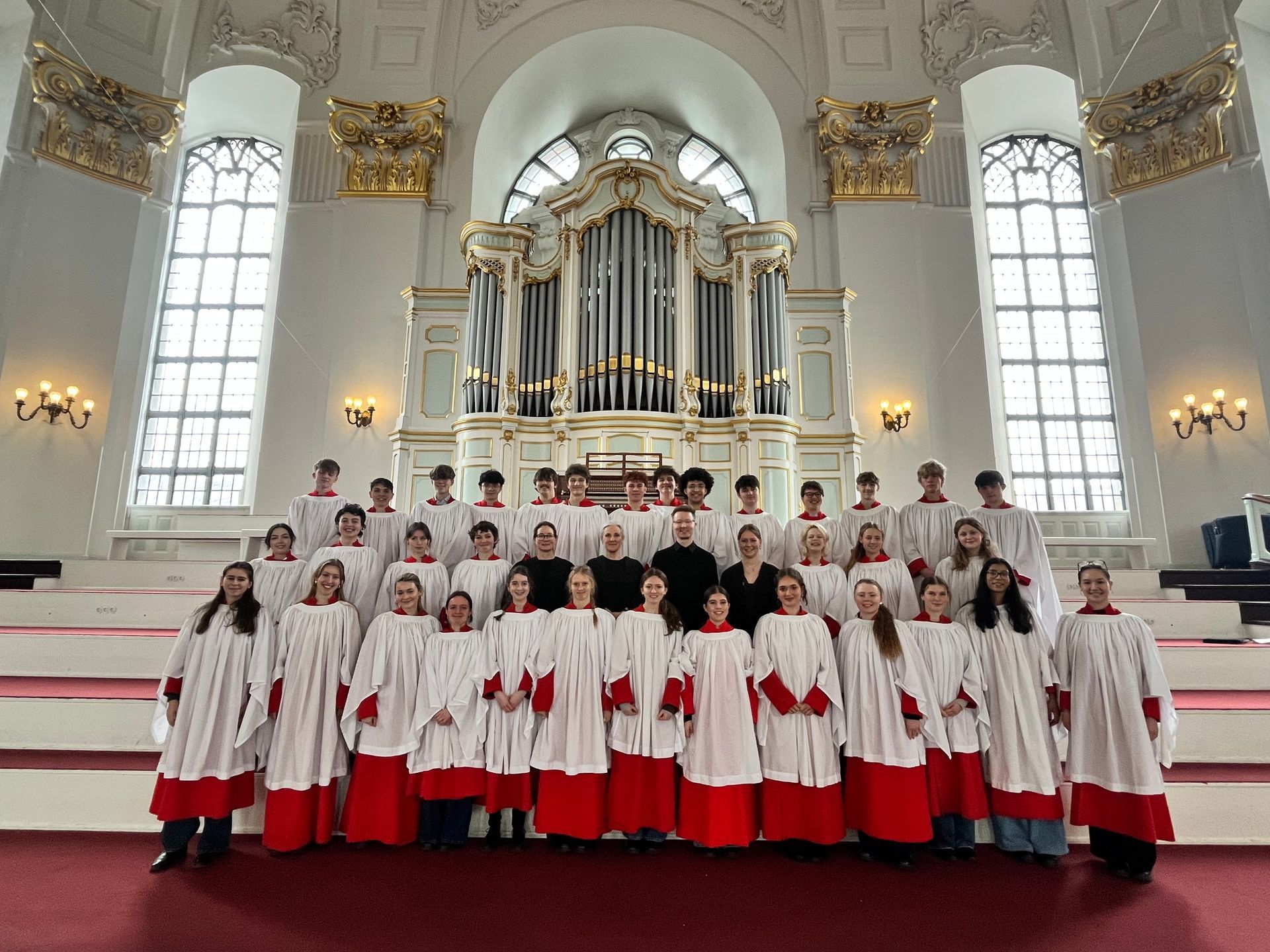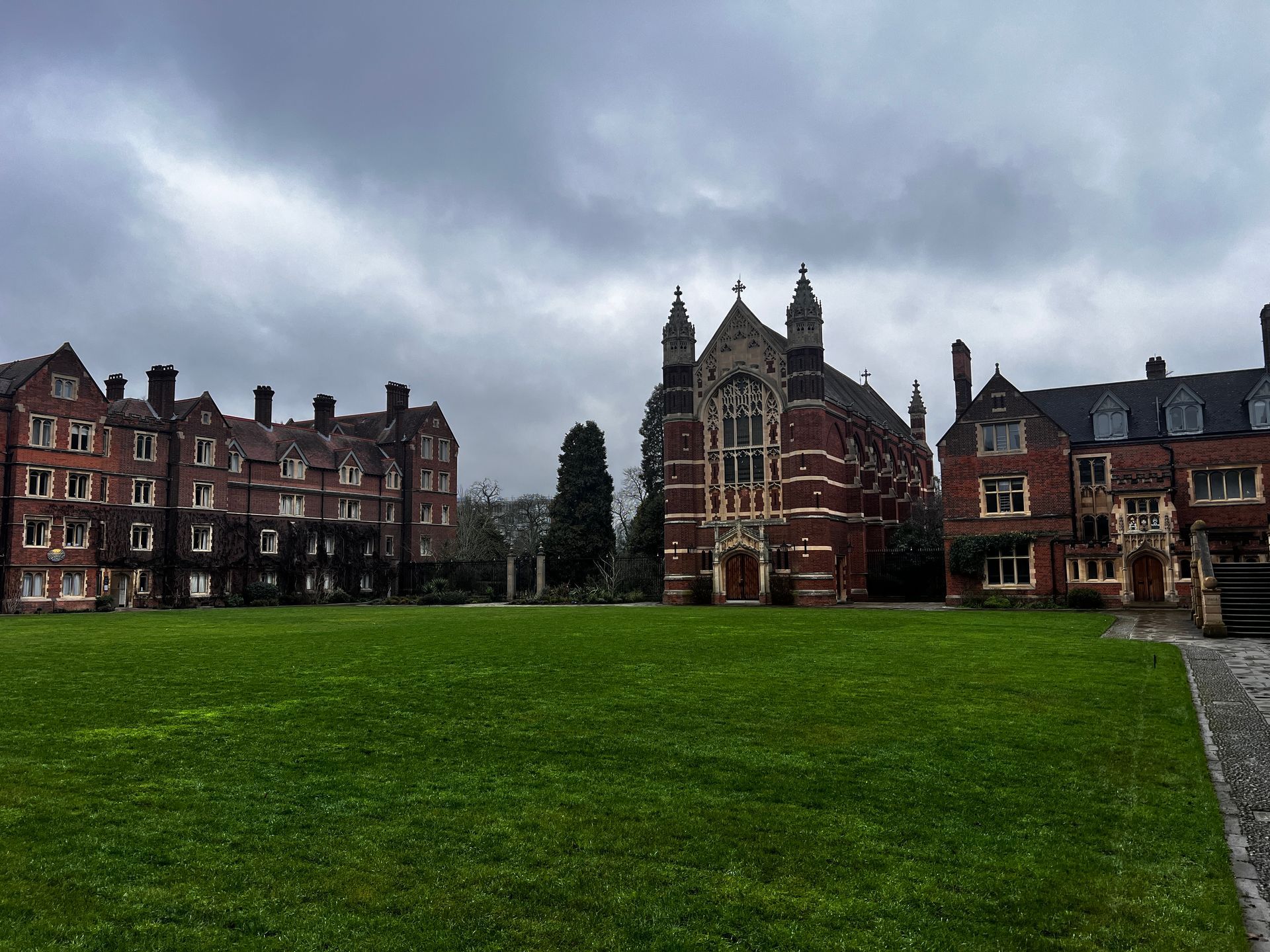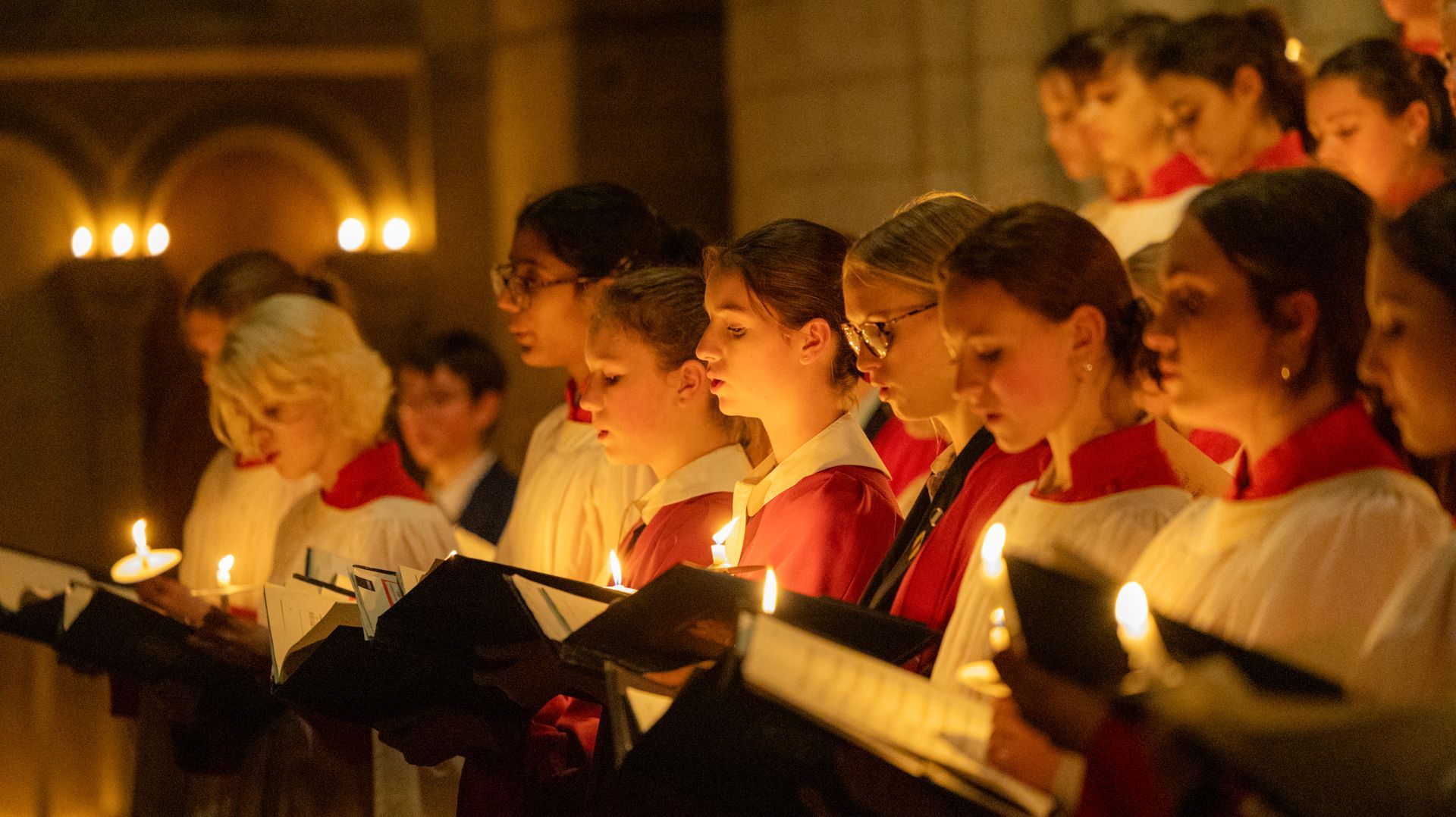“If we’re kind and polite, the world will be right.” - Katie Grote Addresses Pupils
February 7, 2025
Let love be genuine; hate what is evil, hold fast to what is good;
love one another with mutual affection;
be ardent in spirit; be patient in suffering.
Extend hospitality to strangers.
Bless those who persecute you;
Rejoice with those who rejoice; weep with those who weep.
Do not be haughty.
If it is possible, so far as it depends on you, live peaceably with all."
Today’s reading comes from St Paul’s Letter to the Romans. Yes, that’s right - the Romans. I am Mrs Grote, I am part of the Classics Department where we teach Classical Civilisation, Greek and Latin to many of you:
But that’s not why I was recently drawn to this letter to the Romans.
No. Today’s reading, written 2000 years ago, came to mind this Christmas when I was sat in the cinema.
I am not a frequent cinema goer, but recently I found myself there twice, and on consecutive days.
One trip had comfy velvet sofas, waiter service and a glass of wine; the film was Conclave: set in the Vatican, the heart of the Catholic Church, about the election of a pope. Surely it was this film, set in Rome itself, with spoken and sung Latin, that led me to think of Paul’s Letter to the Romans; no, today’s reading came to me on my other cinema trip: no wine this time, no comfy sofa, just the standard seating of the Odeon, and a fidgety six year old for company. The film? Paddington in Peru.
For those less familiar with this recent heartwarming movie, Paddington and the Browns make a journey through the Amazon to find Paddington’s beloved Aunt Lucy who has gone missing from her home for retired bears: on their dangerous quest, they face everything from white water, to poisonous spiders: yet the cause of their survival, as well as the original reason for the journey, is the family’s love for each other.
Today’s reading urged us to “love one another with mutual affection” to “rejoice with those who rejoice, to weep with those who weep.” In other words, like Paddington and the Browns, to love and support each other, in good times and bad.
In Paddington 2, things go wrong for Paddington. He is wrongly imprisoned; but during his jail sentence the prison changes from a place of darkness and hostility to a place of kindness and hope, because of his actions: he teaches his inmates to make marmalade, he brightens their surroundings with flowers, and tea parties, and, in doing so, a sense of community is renewed.
Earlier in his letter, St Paul talks of a love that is genuine. Paddington’s small kind acts in the prison are small acts of love, of genuine love. Nothing grand. Nothing rehearsed. Just simple, sincere actions, that create community and a warmth that is found again and again in the Paddington films and books. We can likewise create such warmth in our communities:
By holding a door open; by giving up a seat up on a bus; by acknowledging and smiling at someone you walk past, even a teacher. With any one of these, you will improve someone’s day.
However, not every instruction from St Paul’s letter to the Romans is so easy to follow:
Bless those who persecute you; live peaceably with all.
This is much harder to achieve, but Paddington makes a jolly good attempt. Mr Curry, his nosy and miserly neighbour, is almost always unpleasant and rude to and about Paddington. But Paddington doesn’t hold a grudge; he always responds with goodwill and good cheer. Living peaceably with all doesn’t mean pretending everything is fine or avoiding conflict. It concerns responding appropriately to it. The next time something doesn’t go your way, pause and think: can I respond with understanding instead of anger? Can I, like Paddington, reject conflict and spread peace?
This has already been a lovely, wholesome message for a Friday morning: Paddington and St Paul are all about love and peace; so, off you go; follow their example; spread love and peace. But it wasn’t that message that led me to St Paul’s Letter to the Romans while sat in the Odeon that afternoon. At least not at first.
We sit here in a building steeped in tradition, in particular the Benedictine tradition. Excerpts of the rule of St B are read here at services every day: “All guests who present themselves are to be welcomed; all humility should be shown to a guest. When a guest is announced, he should be met with every service.”
The key teaching of the Benedictine tradition shown here is that of hospitality, offered to all, by all. And here, in the middle of today’s reading, St Paul asks for the same:
Extend hospitality to strangers.
Michael Bond, the 1950s creator of Paddington, knew about this: he knew of families in WWII who gave homes to evacuee children in the Blitz, and to Jewish children fleeing via the KinderTransport. The background of welcoming strangers was very recent history for Michael Bond, as he started Paddington’s story.
When Paddington first arrives in London, he doesn’t know the culture, the language, or how to navigate the city and finds himself alone at a train station. In that moment, the Browns embody the Biblical call and the Benedictine ideal to “extend hospitality to strangers.” He is a refugee, but they do not see him as a problem; they see him as someone in need. They take him in, into their home, their family, and their lives.
But hospitality doesn’t just have to mean house guests or concern immigration policies. Who might need our hospitality today? Is there someone new, someone alone or someone struggling to fit in? Hospitality isn’t only about opening up a home or our borders; it’s about opening our hearts and minds and making space for others in our established habits and busy routines and even into circles of friends; that’s what’s The Browns did for Paddington, and it’s what St Paul – and the Benedictine tradition – ask of us too.
I could go on: St Paul advises the Romans to be ardent in spirit, to rejoice in hope and be patient in suffering. Paddington so often shows relentless optimism, amidst his many many disasters; likewise, he very naturally connects with people from all walks of life – antique dealers, tough, intimidating criminals, bus drivers, shopkeers, bin men – perfectly following the teachings of St Paul and St Benedict about humility, rather than haughtiness.
In the end, the lesson is clear, and it is the same lesson, whether we’re talking about the faith of St Paul in his letter to the Romans, or the Benedictine traditions that shape the life of this cathedral, or the world of The Brown Family and Paddington: who, today, quite rightly, I leave to have the final word:
“If we’re kind and polite, the world will be right.”











